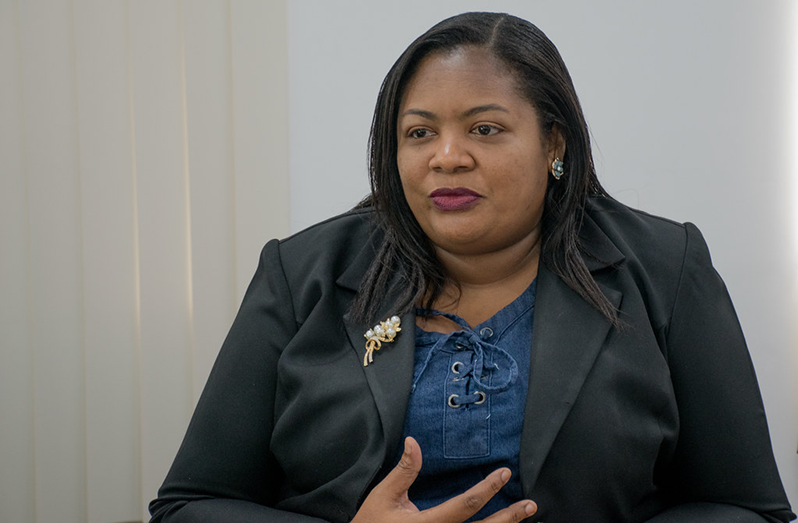-will start testing paint next year
AS Guyana joins the rest of the world in celebrating Pesticides Awareness Week 2022, from October 23 to October 29, the Pesticides and Toxic Chemicals Control Board (PTCCB) will soon be looking to regulate the use of lead paint and eliminate the use of highly hazardous pesticides (HHP).
In keeping with this year’s theme, ‘Pesticides are harmful to our health and the environment! Reduce the use of highly hazardous pesticides’, PTCCB’s registrar, Trecia David, on Monday, told the Guyana Chronicle that the board will be hosting a series of awareness campaigns and trainings.
“Lead in paint is also an issue that is becoming of global concern. Guyana has been engaging with the international organisations who support chemical management in countries like ours and it’s something that we have been building capacity on,” David said.
She noted that the aim is to inform both the relevant industries and the general public about the harms excessive lead can cause.
“… what we want to do is start raising awareness in this week so that finally the industries and the public can take note that lead poisoning is something that is real and it can cause harm.”
She further noted that the board has begun the registration of paints and will, in the new year, conduct further monitoring and begin testing.
“Currently we are registering these paints. We are monitoring based on the certificate of composition and in the new year we are going to go the phase of testing to ensure that they adhere to the limit that should be there,” she said.
David disclosed that the board is also working to establish a regulated policy for the sale of different categories of paint.
“There are different categories of paint in Guyana. For example, we have industrial paints being registered for import and sale and we are working now to quickly identify those companies and to put a policy in place,” she said, adding:
“…if industrial paint is meant for professional users, a consumer must not be able to walk off the road and pick up industrial paint off the shelf to take in their homes because those things have strictive users.”
Meanwhile, as it relates to the elimination of HHP, the PTCCB will be hosting several stakeholders’ meetings.
“A group that we will be targetting is industries, because industries have a key role to play. One of the things that we must look at when phasing out HHP, is that we must be able to have the replacement; other pesticides that are less toxic that farmers can have access to,” David said.
She hopes that these meetings will see Guyana coming in line with the global efforts being made with chemical management.
“During the week, we are going to have a dialogue with industries. We are looking forward to bringing chemical importers together and we are going to start raising awareness with them as to how they can be a part of the solution,” she said.
As it relates to farmers, the board will also focus on informing them about the importance of the use of agro-chemicals and the negative impact it can have on their business, their personal health and that of others, if not used correctly.
“Additionally, we are doing awareness to farmers. We have … farmers’ trainings. One target group also is the extension officers from the Ministry of Agriculture because they also provide key information and guidance to farmers on the use of pesticides,” David said.
She added: “The idea during the week is to raise as much awareness as possible. We are going to be on the television having a discussion on its theme and what it means. We are also going to be on the market to promote the reduction of HHP. Some of these products may be used in homes, in gardens, so, the awareness is to various stakeholder groups.”
While awareness plays a key role in the elimination of HHPs in Guyana, policymakers will do their part.
“But the main thing that has to happen beyond this week is the decision-making that has to happen between the policymakers and that is something at our end that we have to consider very strongly as well,” David said.



.jpg)








